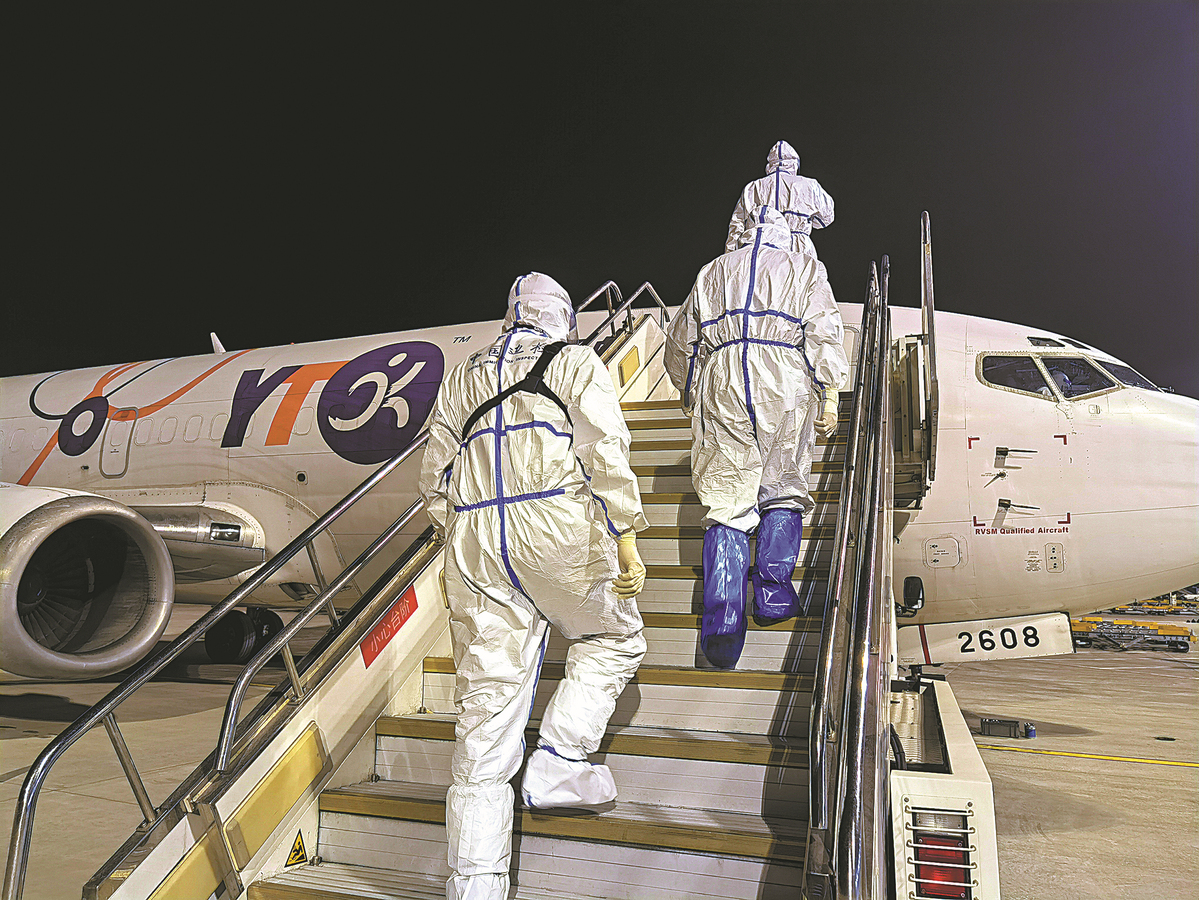Officers put duty first for COVID-19 inspections


Combined efforts
In 2011, He Xiao joined the immigration police force in Shenzhen, Guangdong province.
The 33-year-old is mainly responsible for inspecting the entry and exit documents of passengers at Shenzhen Bay Port, which is close to Hong Kong. In September, she started a pattern of seven-day shifts, followed by seven days of quarantine.
Passenger clearance operations at the port run from 10 am to 10 pm, while cargo clearance is conducted 24 hours a day. As her husband works overseas, He has to balance her busy work schedule with family duties, spending almost all her free time taking care of her two children and elderly parents. Despite that, she still feels she is not doing enough.
In January 2020, when COVID-19 started to spread, she was enjoying the Spring Festival holiday in her hometown in Hunan province.
However, on the second day of the break, she received a call from the border inspection station recalling her to her post.
The following day, He's husband drove her, their children and her parents on the 900-kilometer trip back to Shenzhen.
"During the journey, I noticed that all the staff members at every highway checking station were wearing protective suits to take people's temperatures. That's when I realized how serious and dangerous the outbreak was," He said.
"Frankly, I was quite afraid at the time, but my family's strong support gave me the courage to face it. My colleagues also overcame difficulties and arrived at their posts on time, so I was not fighting alone."
Before the epidemic, the port handled an average 133,000 passengers a day, and the officers checked nearly 13,000 vehicles.
The numbers rose every year as a result of a series of measures launched by the National Immigration Administration.
There has been a sharp decline in numbers since the COVID-19 outbreak. Shenzhen Bay is the only land port offering customs clearance for passengers in Shenzhen and Hong Kong. In addition to passenger checks, He has to inspect vehicles that pass through the port.
"I wear my protective suit for five or six hours without eating, drinking or going to the bathroom, while inspecting passengers. At first, I didn't think much about the risk of becoming infected because our job is to ensure the security of the border area while protecting ourselves," she said.
Family ties
He's husband has been working in Bangkok, Thailand, since 2020, and they have often been separated for long periods because of the pandemic.
"My husband has only returned twice during the past two years. In December 2020, when he first returned and used the port where I work, I was fully covered by protective gear, but he recognized me immediately. He suddenly appeared in front of me and said, 'Dear, thanks for all your hard work.' Although I was full of anxiety at the time, it vanished into thin air when I heard his voice," He said.
"We shoulder great responsibilities to ensure border security. From wearing this uniform, I have come to understand that it is worth sacrificing my family time to ensure safe reunions for other families."
He had to work during the Spring Festival holiday, so she could only send New Year greetings to her family via her smartphone.
When her husband, who works for a telecoms company, was in Thailand during Spring Festival last year, he wrote her a letter.
It included the words: "All the difficulties and pressures will only make us more united and stronger. At this moment, we are like a pair of warriors fighting side by side. I fight the battle in smart technology and you stand firm at the port in the fight against the epidemic."
























